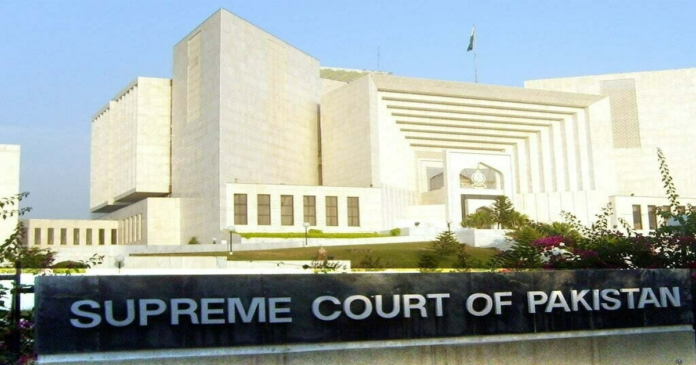The Practise and Procedure Act of 2023 has been deemed valid by the Supreme Court of Pakistan.
SC Practice Procedure Act declared legal: After all respondents had finished arguing, Chief Justice Qazi Faez Isa read the short order that had earlier been reserved by a 15-member full court bench.
Ten of the 15 members of the entire court bench, according to the chief justice, have deemed the legislation passed by the Parliament with regard to the Chief Justice’s authority to be correct.
According to the CJP, the majority opinion of the full court determined the petitions submitted in opposition to the Supreme Court Practise and Procedure Act, 2023, to be inadmissible.
He asserted that Justices Ijaz-ul-Ahsan, Munib Akhtar, Syed Mazahar Ali Akbar Naqvi, Shahid Waheed, and Ayesha A. Malik disagreed with the views of 10 Supreme Court justices.
The nation can watch the proceedings and the arguments made by the attorneys thanks to the hearing’s live broadcast on state-run PTV.
The chief justice-led full bench comprises 15 judges – Justice Sardar Tariq Masood, Justice Ijazul Ahsan, Justice Syed Mansoor Ali Shah, Justice Munib Akhtar, Justice Yahya Afridi, Justice Aminuddin Khan, Justice Sayyed Mazahar Ali Akbar Naqvi, Justice Jamal Khan Mandokhel, Justice Muhammad Ali Mazhar, Justice Ayesha A. Malik, Justice Athar Minallah, Justice Syed Hasan Azhar Rizvi, Justice Shahid Waheed and Justice Musarrat Hilali is hearing the case.
As all of the petitioners, including the political parties, have finished speaking, the attorney general of Pakistan (AGP), Mansoor Usman Awan, is now giving his arguments before the court.
In opposition to the petitions, the AGP argued that Article 191 of the Pakistani Constitution grants the Parliament legislative authority. The SC (Practise and Procedure) Act does not intend to undermine the judiciary’s independence.
He continued that no provision could strip the Parliament of its authority to pass laws.
“Supreme Court Addresses Fundamental Rights and Trust: Insights from Chief Justice Isa and Attorney General Awan”
“Awan said to the supreme court judges, ‘We exercise the fundamental rights enshrined in Articles 14, 20, 22, and 28 in accordance with the law.'”
In his remarks, Pakistan’s Chief Justice (CJP), Justice Qazi Faez Isa, stated that both the Parliament and the judiciary enjoy trust.
He argued against making efforts to divvy up the judiciary and the legislature. The chief judge stated that neither the Parliament nor the Supreme Court view one another as foes.
At the prior session, Chief Justice Isa said that a lack of a two-thirds majority shouldn’t prevent Parliament from acting favorably.
A law
Additionally, The law restricts the Chief Justice of Pakistan’s ability to form benches on his own and to take suo motu notice. Further, The chief justice and the two most senior judges of the court form a three-member committee with the authority to take notice suo motu.
The SC Practise and Procedure Act, which also contains the power to appeal, intends to establish open procedures in the Supreme Court.
However, After President Arif Alvi had returned the bill, the PDM government had passed it in the joint session of parliament on April 10.

